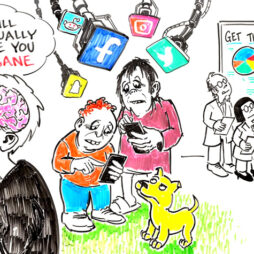Acton.org | by Anthony B. Bradley | May 6, 2009
Necessity is the mother of invention, said Plato, and the truth of the proverb has been borne out once again. Necessity is generating entrepreneurial energy amid America’s current economic crisis, according to a new study by the Kansas City-based Kaufman Foundation. The study reveals an increase in business startups during 2008, as the recession was taking hold. The rise is consistent with similar previous trends, such as the boomlet occurring after the tech bust of the 1990s. Throughout human history, a nation’s best resource in time of crisis has been the unleashed creative and entrepreneurial spirit of its citizens.
According to the study, U.S. entrepreneurship rates increased for lowest-income-potential and middle-income-potential types of businesses from 2007 to 2008 but decreased for the highest-income-potential types of businesses. In other words, the highest growth rates were among necessity-inspired everyday Americans. The entrepreneurial spirit embedded in all human persons has been stirred in women and men at all levels of society.
The oldest age group—ages 55 to 64—experienced a big increase in business-creation rates from 2007 to 2008 and, as a result, has the highest level of business creation at 0.36 percent. Among immigrants, entrepreneurial activity rates increased sharply in 2008 from 0.46 percent in 2007 to 0.53 percent in 2008, further widening the gap between immigrant and native-born rates. Even within the field of high-income type enterprises, immigrants remain more likely than U.S. natives to start businesses.
[…]
The data from the Kaufman Foundation should come as no surprise. The entrepreneurial spirit is a natural characteristic of being human. What enables free societies to recover and advance beyond poverty and economic collapse is the extent to which the entrepreneurial spirit of its citizens is liberated and protected so that real needs are freely met in the long-run. Nothing raises the standard of living for a society more than free people using their creativity to enhance the lives of their neighbors.
Championing the entrepreneurial spirit is not, however, a tacit affirmation of all enterprising activity. The best entrepreneurial effort is that what which enlivens virtue and orients society toward the good. Immoral forms of crisis-driven entrepreneurial activity undermine the character and integrity of the producer and the consumer. We have seen this recently in various scams to defraud those who are vulnerable, in the theft of private property that is then sold in international black markets, and in human trafficking and prostitution.
When individuals are truly free to exercise their talents and trade the production of their labor, without oppression from tyrants or the entanglements of unnecessary government “oversight,” the net effect is mutually beneficial for society as a whole. Robert Fairlie, professor of economics at the University of California, Santa Cruz and author of the Kaufman study, notes, “the continuing effects of the recession on business creation are important because entrepreneurs contribute to economic growth, innovation and job creation in the United States.”
. . . more

